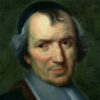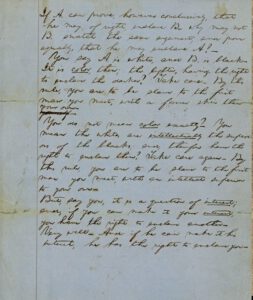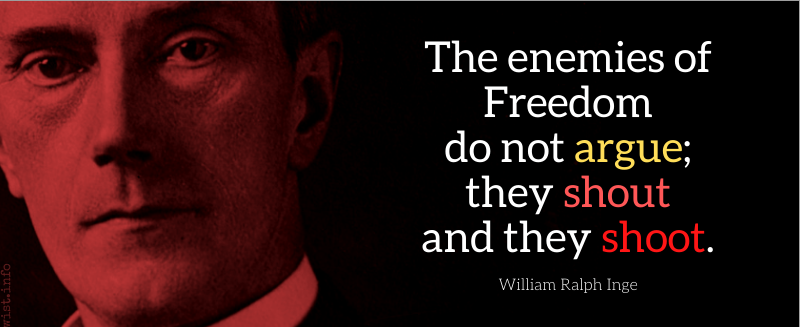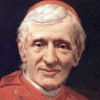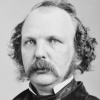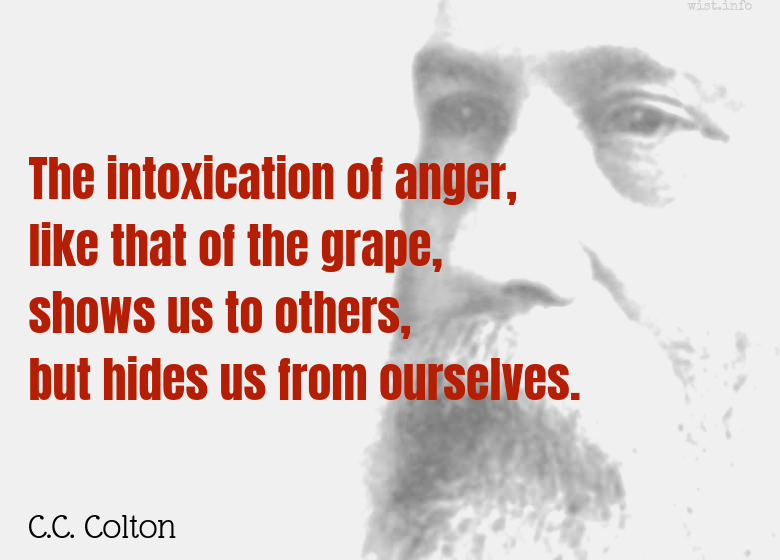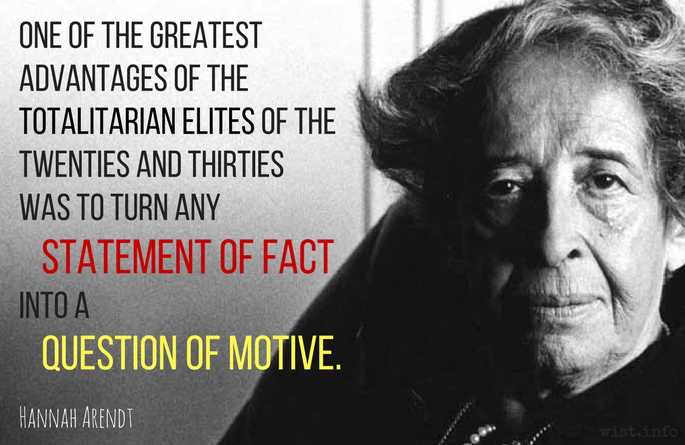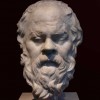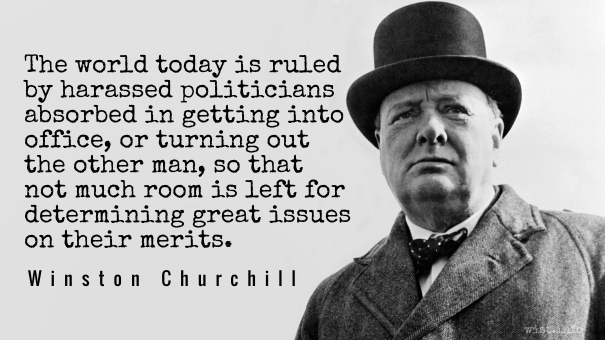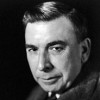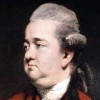Do nothing, only keep agitating, debating; and things will destroy themselves.
Thomas Carlyle (1795-1881) Scottish essayist and historian
The French Revolution: A History, Part 1, Book 6, ch. 3 (1.6.3) (1837)
(Source)
On the inactivity of the elected National Assembly leading up to the Revolution.
Quotations about:
debate
Note not all quotations have been tagged, so Search may find additional quotes on this topic.
There is this disadvantage to be endured in reading books by members of some party or faction, that they do not always give us the truth. Facts are distorted, opposing points of view are not stated with sufficient force or with complete accuracy; and the most longsuffering reader must tire at last of such a great number of harsh and insulting terms used against one another by these earnest men, who make a personal quarrel out of a doctrinal point or a disputed fact. The peculiar thing about these works is that they deserve neither the prodigious vogue they enjoy for a while nor the profound neglect into which they lapse when, passions and divisions having died down, they become like last year’s almanacs.
[L’on a cette incommodité à essuyer dans la lecture des livres faits par des gens de parti et de cabale, que l’on n’y voit pas toujours la vérité. Les faits y sont déguisés, les raisons réciproques n’y sont point rapportées dans toute leur force, ni avec une entière exactitude; et, ce qui use la plus longue patience, il faut lire un grand nombre de termes durs et injurieux que se disent des hommes graves, qui d’un point de doctrine ou d’un fait contesté se font une querelle personnelle. Ces ouvrages ont cela de particulier qu’ils ne méritent ni le cours prodigieux qu’ils ont pendant un certain temps, ni le profond oubli où ils tombent lorsque, le feu et la division venant à s’éteindre, ils deviennent des almanachs de l’autre année.]
Jean de La Bruyère (1645-1696) French essayist, moralist
The Characters [Les Caractères], ch. 1 “Of Works of the Mind [Des Ouvrages de l’Esprit],” § 58 (1.58) (1688) [tr. Stewart (1970)]
(Source)
Some translators suggests this references polemical writings between the Jesuits and Jansenists.
(Source (French)). Alternate translations:
We have this disadvantage in reading Books written by Men of Party and Cabal: We seldom meet with the Truth in 'em; Actions are there disguised, the reasons of both sides are not alledg'd with all their force, nor with an entire exactness. He who has the greatest patience must read abundance of hard, injurious reflexions on the gravest men, with whom the Writer has some personal quarrel about a point of Doctrine, or matter of Controversie. These Books are particular in this, that they deserve not the prodigious Sale they find at their first appearance, nor the profound Oblivion that attends 'em after∣wards: When the fury and division of these Authors cease, they are forgotten, like an Almanack out of date.
[Bullord ed. (1696)]
We have this Inconveniency in reading Books written by Men of Party and Cabal, we seldom meet Truth in them; Actions are there disguis'd, the Reasons of both sides not alledg'd with all their force, nor with an entire exactness. He who has the greatest Patience, must read abundance of hard and scurrilous Reflections on the gravest Men, who make a personal Quarrel about a Point of Doctrine, or Matter of Controversy. These Books are particular in this, that they deserve not the prodigious Sale they find at their first appearance, nor the profound Oblivion which attends 'em afterwards. When the Fury and Division of Parties cease, they are forgotten like Almanacks out of date.
[Curll ed. (1713)]
This is the certain disadvantage of reading Books written by Men of Party and Cabal, Truth is not in them; Actions are disguised, the Reasons of both sides are not alledged with all their force, nor with an entire exactness. And, what no patience can bear, he must read abundance of scurrilous Reflections tost to and fro by grave Men, making a personal Quarrel about a Point of Doctrine, or controverted Fact. These Books are particular in this, that they deserve not the prodigious Sale they find at their first appearance, nor the profound Oblivion that attends them afterwards: When the Ebullitions of Parties subside, they are forgotten like an Almanack out of date.
[Browne ed. (1752)]
The disadvantage of reading books written by people belonging to a certain party or a certain set is that they do not always contain the truth. Facts are disguised, the arguments on both sides are not brought forward in all their strength, nor are they quite accurate; and what wears out the greatest patience is that we must read a large number of harsh and scurrilous reflections, tossed to and fro by serious-minded men, who consider themselves personally insulted when any point of doctrine or any doubtful matter is controverted. Such works possess this peculiarity, that they neither deserve the prodigious success they have for a certain time, nor the profound oblivion into which they fall afterwards, when the rage and contention have ceased, and they become like almanacks out of date.
[tr. Van Laun (1885)]
You can see how infinitely laborious and fruitless it would be to try to refute every objection they offer, when they have resolved never to think before they speak provided that somehow or other they contradict our arguments.
[Quorum dicta contraria si totiens uelimus refellere, quotiens obnixa fronte statuerint non cogitare quid dicant, dum quocumque modo nostris disputationibus contradicant, quam sit infinitum et aerumnosum et infructuosum uides.]
Augustine of Hippo (354-430) Christian church father, philosopher, saint [b. Aurelius Augustinus]
City of God [De Civitate Dei], Book 2, ch. 1 (2.1) (AD 412-416) [tr. Bettenson (1972)]
(Source)
(Source (Latin)). Alternate translations:
If we should bind ourselves to give an answer to every contradiction that their impudence will thrust forth (how falsely they care not, for they do but make a show of opposition into our assertions), you see what a trouble it would be, how endless, and how fruitless.
[tr. Healey (1610)]
Now, if we were to propose to confute their objections as often as they with brazen face chose to disregard our arguments, and so often as they could by any means contradict our statements, you see how endless, and fruitless, and painful a task we should be undertaking.
[tr. Dods (1871)]
You can easily see what an endless, wearisome, and fruitless task it would be, if I were to refute all the unconsidered objections of people who pig-headedly contradict everything I say.
[tr. Zema/Walsh (1950)]
If we were bound to refute their objections every time they make their bull-headed resolve not to consider the meaning of their words as long as they deny our arguments, no matter how, you see how endless and wearisome and unprofitable it would be.
[tr. McCracken (Loeb) (1957)]
If we resolved to refute their contrary arguments as often as they resolve obstinately to contradict our reasoning in whatever way they can, without considering the truth of what they say, you see what an infinite and toilsome and fruitless task we should have.
[tr. Dyson (1998)]
So you see how endlessly futile and fruitless it would be if we wanted to refute their objections every time they obstinately resolved not to think through what they say but merely to speak, just so long as they contradict our arguments in any way they can.
[tr. Babcock (2012)]
It is astonishing how articulate one can become when alone and raving at a radio. Arguments and counter arguments, rhetoric and bombast flow from one’s lips like scurf from the hair of a bank manager.
Stephen Fry (b. 1957) British actor, writer, comedian
“Trefusis on Any Questions,” Loose Ends, BBC Radio 4 (c. 1987)
(Source)
Reprinted in Paperweight (1992)
I suggested a plan one time to shorten the Senate debate. Every time a Senator tells all he knows, make him sit down. That will shorten it. Some of them wouldn’t be able to answer roll call.
Printers are educated in the Belief, that when Men differ in Opinion, both Sides ought equally to have the Advantage of being heard by the Publick; and that when Truth and Error have fair Play, the former is always an overmatch for the latter: Hence they chearfully serve all contending Writers that pay them well, without regarding on which side they are of the Question in Dispute.
Benjamin Franklin (1706-1790) American statesman, scientist, philosopher, aphorist
“Apology for Printers,” Philadelphia Gazette (1731-06-10)
(Source)
A clever speaker can speak on any
subject, either for or against.[ἐκ παντὸς ἄν τις πράγµατος δισσῶν λόγων
ἀγῶνα θεῖτ᾽ἄν, εἰ λέγειν εἴη σοφός.]Euripides (485?-406? BC) Greek tragic dramatist
Antiope [Αντιοπη], frag. 189 (TGF, Kannicht) [Chorus] (c. 410 BC)
(Source)
Barnes frag. 79, Musgrave 39. (Source (Greek)). Alternate translations:
The skillful orator can either side
Maintain on every topic of debate.
[tr. Wodhall (1809)]
A man could make an argument for two sides of any
matter, if he were a clever speaker.
[tr. Will (2015)]
Although we have already spoken in the First Part touching the utility of the definition of terms, it is nevertheless so important, that we cannot have it too much impressed on our minds, since we may by it clear up a number of disputes, which have as their subject often only the ambiguity of terms, which one takes in one sense, and another in another. So that some of the greatest controversies would cease in a moment, if one or the other of the disputants took care to make out precisely, and in a few words, what he understands by the terms which are the subject of dispute.
Antoine Arnauld (1612-1694) French theologian, philosopher, mathematician
Logic, or the Art of Thinking [La Logique ou l’art de penser; The Port-Royal Logic], Part 4, ch. 4 (1662) [with Pierre Nicole] [tr. Baynes (1850)]
(Source)
Alternate translation:
Although we have already spoken in Part I about the usefulness of defining one's terms, this is, however, so important that we cannot bear it too much in mind, since this is how countless disputes are cleared up whose cause is often merely an ambiguity in terms that one person takes one way and another person another way. Accordingly, some very serious arguments would cease in an instant if either of the disputants took the care to indicate clearly, in a few words, the meanings of the terms that are the subject of dispute.
[tr. Buroker (1996)]
Even when you are right, it is good to make concessions: people will recognize you were right but admire your courtesy. More is lost through holding on than can be won by defeating others. One defends not truth but rudeness.
[Aun en caso de evidencia, es ingenuidad el ceder, que no se ignora la razón que tuvo y se conoce la galantería que tiene. Más se pierde con el arrimamiento que se puede ganar con el vencimiento; no es defender la verdad, sino la grosería.]
Baltasar Gracián y Morales (1601-1658) Spanish Jesuit priest, writer, philosopher
The Art of Worldly Wisdom [Oráculo Manual y Arte de Prudencia], § 183 (1647) [tr. Maurer (1992)]
(Source)
(Source (Spanish)). Alternate translations:
It is civil to yield, even in those things wherein we have greatest reason and certainty: for then all know, who had reason on their side: and besides the reason, Gallantry is also discovered in the procedure. There is more esteem lost, by a wilfull resistence, then there is got by carrying it by open force. For that is not so much a defending of truth, as a demonstration of Clownishness.
[Flesher ed. (1685)]
Even in cases of obvious certainty it is fine to yield: our reasons for holding the view cannot escape notice, our courtesy in yielding must be the more recognised. Our obstinacy loses more than our victory yields: that is not to champion truth but rather rudeness.
[tr. Jacobs (1892)]
Even with the proof on your side, it is well to make concession, for your reasons are known and your gentlemanliness is recognized; more is lost in contention than can be gained in consummation, for such does not defend the truth, but only exhibits bad manners.
[tr. Fischer (1937)]
We’re stronger because we’re democracies. We’re not afraid of free and fair elections, because true legitimacy can only come from one source — and that is the people. We’re not afraid of an independent judiciary, because no one is above the law. We’re not afraid of a free press or vibrant debate or a strong civil society, because leaders must be held accountable. We’re not afraid to let our young people go online to learn and discover and organize , because we know that countries are more successful when citizens are free to think for themselves.
Barack Obama (b. 1961) American politician, US President (2009-2017)
Speech, Nordea Concert Hall, Tallinn, Estonia (3 Sep 2014)
(Source)
Many see the trees but not the forest, or bark up the wrong tree, speaking endlessly, reasoning uselessly, without getting to the heart of the matter. They go round and round, tiring themselves and us, and never get to what is important. This happens to people with confused minds who do not know how to clear away the brambles. They waste time and patience on what it would be better to leave alone, and later there is no time for what they left.
[Vanse muchos o por las ramas de un inútil discurrir, o por las hojas de una cansada verbosidad, sin topar con la sustancia del caso. Dan cien vueltas rodeando un punto, cansándose y cansando, y nunca llegan al centro de la importancia. Procede de entendimientos confusos, que no se saben desembarazar. Gastan el tiempo y la paciencia en lo que habían de dejar, y después no la hay para lo que dejaron.]
Baltasar Gracián y Morales (1601-1658) Spanish Jesuit priest, writer, philosopher
The Art of Worldly Wisdom [Oráculo Manual y Arte de Prudencia], § 136 (1647) [tr. Maurer (1992)]
(Source)
(Source (Spanish)). Alternate translations:
Many fetch a tedious compass of words, without ever coming to the knot of the business: they make a thousand turnings and windings, that tire themselves and others, without ever arriving at the point of importance. And that proceeds from the confusion of their understanding, which cannot clear it self. They lose time and patience in what ought to be let alone, and then they have no more to bestow upon what they have omitted.
[Flesher ed. (1685)]
Many lose their way either in the ramifications of useless discussion or in the brushwood of wearisome verbosity without ever realising the real matter at issue. They go over a single point a hundred times wearying themselves and others and yet never touch the all important centre of affairs. This comes from a confusion of mind from which they cannot extricate themselves. They waste time and patience on matters they should leave alone and cannot spare them afterwards for what they have left alone.
[tr. Jacobs (1892)]
Most roam around, in useless millings either about the edge, or in the scrub of a tiresome verbosity, without striking upon the substance of the matter, they make a hundred turns about a point, wearying themselves, and wearying others, yet never arriving at the centre of what is important,- it is the product of a scattered brain that does not know how to get itself together,- they spend time, and exhaust patience, over that which they should leave alone, and afterwards are short of both for what they did leave alone.
[tr. Fischer (1937)]
When men are brought face to face with their opponents, forced to listen and learn and mend their ideas, they cease to be children and savages and begin to live like civilized men. Then only is freedom a reality, when men may voice their opinions because they must examine their opinions.
Walter Lippmann (1889-1974) American journalist and author
“The Indispensable Opposition,” The Atlantic Monthly (Aug 1939)
(Source)
If A. can prove, however conclusively, that he may, of right, enslave B. — why may not B. snatch the same argument, and prove equally, that he may enslave A?
You say A. is white, and B. is black. It is color, then; the lighter having the right to enslave the darker? Take care. By this rule, you are to be slave to the first man you meet, with a fairer skin than your own.
You do not mean color exactly? — You mean the whites are intellectually the superior of blacks, and, therefore, have the right to enslave them? Take care again. By this rule, you are to be slave to the first man you meet, with an intellect superior to your own.
But, say you, it is a question of interest; and, if you can make it your interest, you have the right to enslave another. Very well. And if he can make it his interest, he has the right to enslave you.
Abraham Lincoln (1809-1865) American lawyer, politician, US President (1861-65)
Fragment on Slavery (c. 1854)
(Source)
A man may be in as just possession of Truth as of a City, and yet be forced to surrender.
Thomas Browne (1605-1682) English physician and author
Religio Medici, Part 1, sec. 6 (1643)
(Source)
Experts are never right or wrong; they win or lose. Right and wrong are decided by proof; winning and losing are decided by who is doing the talking or talks the loudest, has the last, latest, or only word, and is quoted by reporters.
To disagree well you must first understand well. You have to read deeply, listen well, watch closely. You need to grant your adversary moral respect; give him the intellectual benefit of doubt; have sympathy for his motives and participate empathically with his line of reasoning. And you need to allow for the possibility that you might yet be persuaded of what he has to say.
When I talk about the death penalty to people, there are a zillion pragmatic arguments to make that the death penalty is more expensive, that you could make mistakes with the death penalty. I try to never use them, because I believe that as soon as I use them, I have dropped what matters to me. Because those arguments are disingenuous. To say, “What if we put an innocent person to death?” I am then telling you that if you can promise me we won’t put any innocent people to death that I’m somehow OK with that, and I’m fucking not. Killing people is wrong. Government shouldn’t fucking do it. End of story.
Penn Jillette (b. 1955) American stage magician, actor, musician, author
Interview by Kahterine Mangu-Ward, Reason (Jan 2017)
(Source)
Every great idea is really just a spectacular disagreement with some other great idea.
One should emulate works and deeds of virtue, not arguments about it.
[Ἔργα καὶ πρήξιας ἀρετῆς, οὐ λόγους, ζηλοῦν χρειών.]
Democritus (c. 460 BC - c. 370 BC) Greek philosopher
Frag. 55 (Diels) [tr. Bakewell (1907)]
(Source)
Cited in Diels as "55. (121 N.) DEMOKRATES. 21"; collected in Joannes Stobaeus (Stobaios) Anthologium II, 15, 36. Bakewell lists this under "The Golden Sayings of Democritus." Freeman notes this as one of the Gnômae, from a collection called "Maxims of Democratês," but because Stobaeus quotes many of these as "Maxims of Democritus," they are generally attributed to the latter.
Alternate translations:
- "One should emulate the deeds and actions of virtue, not the words." [tr. Freeman (1948)]
- "One must emulate the deeds and actions fo virtue, not the words." [tr. Barnes (1987)]
- "It is necessary to envy the deeds of the work of virtue not the words." [tr. @sententiq (2018)]
- "Envy the deeds and actions of virtue, not the words." [Source]
Great causes are never tried on their merits; but the cause is reduced to particulars to suit the size of the partisans, and the contention is ever hottest on minor matters.
Ralph Waldo Emerson (1803-1882) American essayist, lecturer, poet
“Nature,” Essays: Second Series (1844)
(Source)
It is difficult to get a man to understand something, when his salary depends upon his not understanding it!
Upton Sinclair (1878-1968) American writer, journalist, activist, politician
I, Candidate for Governor: And How I Got Licked, ch. 20 (1935)
(Source)
A regular comment of his on the campaign trail. The wording is Sinclair's, though there are earlier references with the same sentiment (see here for more discussion).
Often misattributed to H. L. Mencken. (e.g., "Never argue with a man whose job depends on not being convinced") though not found in his work.
It is as absurd to argue men, as to torture them, into believing.
John Henry Newman (1801-1890) English prelate, Catholic Cardinal, theologian
“The Usurpations of Reason,” Sermon, Oxford, England (11 Dec 1831)
(Source)
And so these men of Indostan
Disputed loud and long,
Each in his own opinion
Exceeding stiff and strong.
Though each was partly in the right
And all were in the wrong!So oft in theologic wars,
The disputants, I ween,
Rail on in utter ignorance
Of what each other mean,
And prate about an Elephant
Not one of them has seen!John Godfrey Saxe (1816-1887) American poet and satirist
“The Blind Men and the Elephant,” st. 8 and “Moral” (c. 1861; publ. 1872)
(Source)
Saxe introduced the parable, which dates back to India (c. 500 BC) to American audiences. He wrote the poem originally against what he felt was extremism on both sides that led the the American Civil War.
O’Brien knew everything. A thousand times better than Winston, he knew what the world was really like, in what degradation the mass of human beings lived and by what lies and barbarities the Party kept them there. He had understood it all, weighed it all, and it made no difference: all was justified by the ultimate purpose. What can you do, thought Winston, against the lunatic who is more intelligent than yourself, who gives your arguments a fair hearing and then simply persists in his lunacy?
George Orwell (1903-1950) English writer [pseud. of Eric Arthur Blair]
Nineteen Eighty-Four (1949)
(Source)
Anger blows out the lamp of the mind. In the examination of a great and important question, every one should be serene, slow-pulsed and calm.
Robert Green Ingersoll (1833-1899) American lawyer, agnostic, orator
“The Christian Religion,” Article 3, The North American Review (1881)
(Source)
Our disputants put me in mind of the scuttle-fish, that when he is unable to extricate himself, blackens all the water about him, till he becomes invisible.
Joseph Addison (1672-1719) English essayist, poet, statesman
The Spectator, #476 (5 Sep 1712)
(Source)
The intoxication of anger, like that of the grape, shows us to others, but hides us from ourselves; and we injure our own cause, in the opinion of the world, when we too passionately and eagerly defend it.
Charles Caleb "C. C." Colton (1780-1832) English cleric, writer, aphorist
Lacon, Vol. 1, #240 (1820)
(Source)
To have a discussion coolly waived when you feel that justice is all on your side is even more exasperating in marriage than in philosophy.
George Eliot (1819-1880) English novelist [pseud. of Mary Ann Evans]
Middlemarch, Book 3, ch. 24 (1871)
(Source)
Philosophy had supplied Socrates with convictions in which he had been able to have rational, as opposed to hysterical, confidence when faced with disapproval.
Alain de Botton (b. 1969) Swiss-British author
The Consolations of Philosophy, ch. 1 “Consolations for Unpopularity” (2000)
(Source)
One of the greatest advantages of the totalitarian elites of the twenties and thirties was to turn any statement of fact into a question of motive.
Hannah Arendt (1906-1975) German-American philosopher, political theorist
(Spurious)
This is frequently cited to Arendt, often to The Origins of Totalitarianism, (1951), but is not found as such in her works. The source appears to be a paraphrase of Arendt in a 1999 New Yorker article.
Stuart Elden suggested the following from The Origins of Totalitarianism, Part 3, ch. 11, might be original quotation the paraphrase was built on, though the overall meaning is different:
The elite is not composed of ideologists; its members’ whole education is aimed at abolishing their capacity for distinguishing between truth and falsehood, between reality and fiction. Their superiority consists in their ability immediately to dissolve every statement of fact into a declaration of purpose.
When the debate is lost, slander becomes the tool of the loser.
Socrates (c.470-399 BC) Greek philosopher
(Spurious)
Of recent coinage. See here for more discussion.
Reasoning will never make a Man correct an ill Opinion, which by Reasoning he never acquired.
Jonathan Swift (1667-1745) English writer and churchman
“Letter to a Young Clergyman” (9 Jan 1720)
(Source)
Earliest version of this general sentiment, which has been attributed to (or at times borrowed by) figures such as Sydney Smith, Fisher Ames, and Lyman Beecher.
For more information about this quotation: You Cannot Reason People Out of Something They Were Not Reasoned Into – Quote Investigator.
In disputes upon moral or scientific points, ever let your aim be to come at truth, not to conquer your opponent: so you never shall be at a loss in losing the argument, and gaining a new discovery.
James Burgh (1714-1775) British politician and writer
The Dignity of Human Nature, Sec. 5 “Miscellaneous Thoughts on Prudence in Conversation” (1754)
(Source)
Without debate, without criticism, no Administration and no country can succeed — and no republic can survive. That is why the Athenian lawmaker Solon decreed it a crime for any citizen to shrink from controversy. And that is why our press was protected by the First Amendment — the only business in America specifically protected by the Constitution — not primarily to amuse and entertain, not to emphasize the trivial and the sentimental, not to simply “give the public what it wants” — but to inform, to arouse, to reflect, to state our dangers and our opportunities, to indicate our crises and our choices, to lead, mold, educate and sometimes even anger public opinion.
John F. Kennedy (1917-1963) US President (1961-63)
Speech, American Newspaper Publishers Association (27 Apr 1961)
(Source)
An eagerness and zeal for dispute on every subject, and with every one, shows great self-sufficiency, that never-failing sign of great self-ignorance.
If you mean to make your side of the argument appear plausible, do not prejudice the people against what you think truth by your passionate manner of defending it.
James Burgh (1714-1775) British politician and writer
The Dignity of Human Nature, Sec. 5 “Miscellaneous Thoughts on Prudence in Conversation” (1754)
(Source)
Prejudice, not being founded on reason, cannot be removed by argument.
Samuel Johnson (1709-1784) English writer, lexicographer, critic
(Spurious)
(Source)
Frequently attributed without citation, and not found in Johnson's works. However, the phrase can be found in other contexts:
- "This objection on the score of color is founded upon prejudice, and hence cannot be removed by argument, for prejudice is blind and listens not to reason." -- Rep. Godlove S. Orth of Indiana, speech before the House of Representatives (5 Apr 1869) on the question of admitting the Dominican Republic as a US territory.
- "This persuasion of the power of the priest is, as we have said, a traditional prejudice; it is not founded on any reasons or proofs addressed to the understanding, and therefore it cannot be removed by argument." -- John Eliot Howard, The Island of the Saints (1855), quoting from the Achill Herald (Jun 1855).
But in stating prudential rules for our government in society I must not omit the important one of never entering into dispute or argument with another. I never yet saw an instance of one of two disputants convincing the other by argument. I have seen many of their getting warm, becoming rude, & shooting one another. Conviction is the effect of our own dispassionate reasoning, either in solitude, or weighing within ourselves dispassionately what we hear from others standing uncommitted in argument ourselves.
When a subject is highly controversial — and any question about sex is that — one cannot hope to tell the truth. One can only show how one came to hold whatever opinion one does hold. One can only give one’s audience the chance of drawing their own conclusions as they observe the limitations, the prejudices, the idiosyncrasies of the speaker.
Never argue with a fool; onlookers may not be able to tell the difference.
Mark Twain (1835-1910) American writer [pseud. of Samuel Clemens]
(Spurious)
Frequently attributed to Twain and also to Immanuel Kant (but never, in either case, with any citation). The phrase first makes recognizable (if anonymous) appearance in the late 19th Century; attributions to Twain begin in the late 1990s. See also Proverbs 26:4. For more discussion (and a shout-out to WIST) see here.
I never make the mistake of arguing with people for whose opinions I have no respect.
Edward Gibbon (1737-1794) English historian
(Attributed)
In a Debate, rather pull to Pieces the Argument of thy Antagonist than offer him any of thy own; for thus thou wilt fight him in his own Country.
Thomas Fuller (1654-1734) English physician, preacher, aphorist, writer
Introductio ad Prudentiam, # 766 (1725)
(Source)
It is only when they cannot answer your reasons, that they wish to knock you down.
Ralph Waldo Emerson (1803-1882) American essayist, lecturer, poet
“The Assault upon Mr. Sumner,” speech, Concord (1856-05-26)
(Source)
If government, or those in positions of power and authority, can silence criticism by the argument that such criticism might be misunderstood somewhere, there is an end to all criticism, and perhaps an end to our kind of political system. For men in authority will always think that criticism of their policies is dangerous. They will always equate their policies with patriotism, and find criticism subversive.
Henry Steele Commager (1902-1998) American historian, writer, activist
“The Problem of Dissent” Saturday Review (Dec 1965)
(Source)
Reprinted in Freedom and Order (1966); also read into the US Congressional Record (26 Jun 1969).
I am bound to furnish my antagonists with arguments, but not with comprehension.
Everyone is in favor of free speech. Hardly a day passes without its being extolled, but some people’s idea of it is that they are free to say what they like, but if anyone says anything back, that is an outrage.
Winston Churchill (1874-1965) British statesman and author
Debate, House of Commons (13 Oct 1943)
(Source)
More discussion of this quotation: If Anyone Says Anything Back, That Is an Outrage – Quote Investigator.
It is very natural for young men to be vehement, acrimonious and severe. For as they seldom comprehend at once all the consequences of a position, or perceive the difficulties by which cooler and more experienced reasoners are restrained from confidence, they form their conclusions with great precipitance. Seeing nothing that can darken or embarrass the question, they expect to find their own opinion universally prevalent, and are inclined to impute uncertainty and hesitation to want of honesty, rather than of knowledge.
Samuel Johnson (1709-1784) English writer, lexicographer, critic
The Rambler, #121 (14 May 1751)
(Source)
I love to see two truths at the same time. Every good comparison gives the mind this advantage.
[J’aime à voir deux vérités à la fois. Toute bonne comparaison donne à l’esprit cet avantage.]
Joseph Joubert (1754-1824) French moralist, philosopher, essayist, poet
Pensées [Thoughts], Introduction, “L’auteur Peint par Lui-Même [The Author’ Self-Portrait]” (1850 ed.) [tr. Auster (1983)], 1796]
(Source)
(Source (French)). Alternate translations:
I like to see two truths at once. Every good comparison gives the mind this advantage.
[tr. Calvert (1866), "Notice"]
I like to see two truths at once. Every good comparison gives the mind that advantage.
[tr. Collins (1928)]
First, if any opinion is compelled to silence, that opinion may, for aught we can certainly know, be true. To deny this is to assume our own infallibility.
Secondly, though the silenced opinion be an error, it may, and very commonly does, contain a portion of truth; and since the general or prevailing opinion on any subject is rarely or never the whole truth, it is only by the collision of adverse opinions that the remainder of the truth has any chance of being supplied.
Thirdly, even if the received opinion be not only true, but the whole truth; unless it is suffered to be, and actually is, vigorously and earnestly contested, it will, by most of those who receive it, be held in the manner of a prejudice, with little comprehension or feeling of its rational grounds.
And not only this, but, fourthly, the meaning of the doctrine itself will be in danger of being lost, or enfeebled, and deprived of its vital effect on the character and conduct: the dogma becoming a mere formal profession, inefficacious for good, but cumbering the ground, and preventing the growth of any real and heartfelt conviction, from reason or personal experience.
John Stuart Mill (1806-1873) English philosopher and economist
On Liberty, ch. 2 “Of the Liberty of Thought and Discussion” (1859)
(Source)








